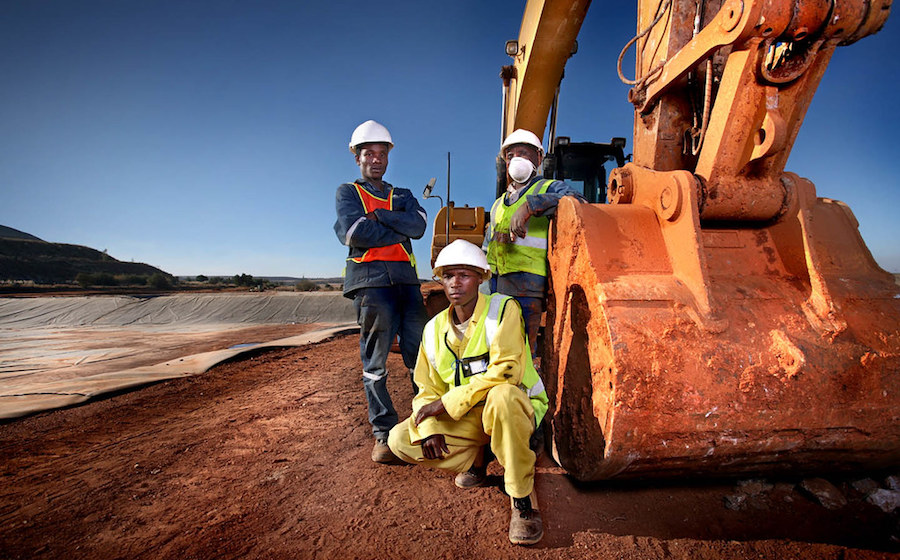South Africa’s rival unions unite in dispute over gold miner pay

South Africa’s long-divided mining unions are forging a united front against the industry’s largest employer as they declared a dispute over wage negotiations with Sibanye Stillwater Ltd.
The National Union of Mineworkers, Association of Mineworkers and Construction Union, UASA and Solidarity will hold an unprecedented joint press conference over their issues with the company on Oct. 1, the labor groups said Wednesday in a statement. Collectively, they are asking for a monthly pay increase of 1,500 rand ($100) for workers in Sibanye’s gold mines. The deal would run over each of the next three years.
A united labor force will present a different dynamic for South African mining companies. NUM and AMCU, the biggest unions in the gold sector, have previously refused to sit at the same negotiating table, with a history of violent clashes between their members. Three years ago, AMCU embarked on a five-month strike that crippled Sibanye’s gold mines after it initially rejected a wage deal that had been agreed upon by the other unions.
“We are all fighting for the common cause,” said NUM spokesman Livhuwani Mammburu. “What’s the use of allowing companies like Sibanye-Stillwater to divide us.”
The unions signed a wage deal earlier this month with Harmony Gold Mining Co., which Sibanye should reference for its own offer, they said. Harmony workers will receive a monthly pay increase of 1,000 rand for each year of the agreement.
The labor groups have declared a dispute and the talks are now taking place under the auspices of the Commission for Conciliation, Mediation and Arbitration, said Sibanye spokesman James Wellsted. The wage increases are unaffordable for the company and “will result in the early closure of the mines if we accede to the unions demands,” he said.
Sibanye employs almost 31,000 workers in a South African gold industry that’s struggling to curb costs amid the geological challenges of the world’s deepest mines.
(By Paul Burkhardt and Felix Njini)
{{ commodity.name }}
{{ post.title }}
{{ post.date }}




Comments